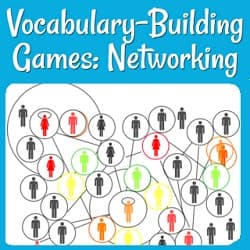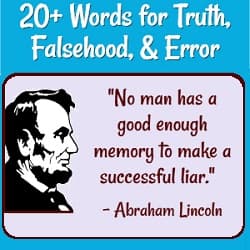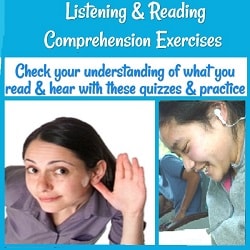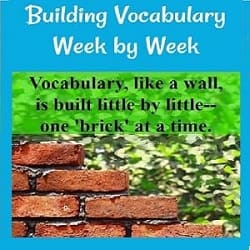Develop advanced communication skills in English
Do you need advanced communication skills in English? Once you’re using English at work, you no longer need much of the basic English instruction on the Internet. (You also won't need half the pages on EnglishHints!)
Instead, your English needs have grown more individualized. They're based on your particular situation and knowledge gaps. Focus on resources to help to meet your current, specific needs rather than one-size-fits-all lessons.
I’ve been working on personalized, advanced lessons for several years.
If you are interested in working with me directly (especially if your focus is on speaking skills), see the last half of Develop your English Speaking Skills for information on my one-on-one and group coaching programs.
On this page I’d like to direct you to some of my pages that may help, and to other resources my students have found useful.
If you have specific questions about your own needs, I can help with those too. (I’ve been studying what’s available online for teaching and learning English for well over ten years.)
You can leave a message on the contact form at the bottom of the page. I’ll be glad to answer—or get on a quick call if that would work better for you. Just let me know.
Go straight to the section on advanced English vocabulary.
Go to the idioms and phrasal verbs section.
Go to the English reading, listening, and writing section.
Go to the section for health care professionals.
Go to the form to contact me directly.
Improve Your Professional English
If you’re in business or if you work as a professional, check out Develop your English Speaking Skills or Master Business English. Do you need to persuade a customer or your boss of the value of your suggestion? See Why the Right Word Matters, How to Change Someone’s Mind, and Effective Examples of Persuasion.
If you have a job interview in English soon, check out Preparing for a Job Interview in English. That page mentions a workshop to help practice for an interview. I hope to offer that again fairly soon-- but can speed up my timeline if I know someone needs it.
There's a link to contact me at the very bottom of the page (the blue section.) Be sure to mention you're interested in the Interview Workshop, and when you expect your interview(s). At the very least I can give a few tips to prepare-- or a lesson if you want to practice with an English-speaker and don't have anyone to help.
Advanced English Vocabulary
You probably won’t need help with vocabulary used in your own profession. You might want to review some vocabulary common across the professions, though. Most of these pages have practice exercises. Some ideas to start:
What's the difference between collaboration & cooperation? Learn & practice words related to teamwork here!
Can you connect these important words related to networking with their meanings?
Learn and practice the words for truth-- and for various forms of falsehood.
Here are some more:
- Charts & Graphs (terminology)
- Personality Vocabulary (especially for resumes and interview preparation)
All these pages (except Charts & Graphs) include practice exercises after providing some explanations. You’ll know many of the words, but a review might help-- and any words you don’t know are likely to be relevant to you.
If you like to do crossword puzzles, I have quite a few. Use them to practice hundreds of the words important in professional and academic situations.
They’re easier than most crosswords for native speakers because I give a list of the words used. (That means you don’t need to think of hundreds of possible words to complete them.) They’re downloadable and printable, and all have answer sheets.
Idioms and Useful Phrases
See Common Idioms for my pages on English idiom and phrasal verb meanings and practice. Those pages also link to more idioms (since we use hundreds in English and I discuss less than 100 on those pages) and to a downloadable free phrasal verb e-book with explanations and over 100 common phrasal verbs.
I made two sample pdfs with a few phrasal verbs (or some idioms) especially relevant for work. You can see or download them (for free) by clicking either link above.
Please let me know if these are helpful-- if it would be worth the effort to make more like them. (You could leave a Facebook comment on this page or complete a quick note on the Contact Me form near the bottom of the page if you don't use Facebook.) I would love to hear what you find useful-- or if some change would make it easier to understand.)
I also have a free downloadable workbook with important professional vocabulary and expressions you might use at work meetings in English. They include ways to ask questions or make your points persuasively (and ways to disagree politely). You can check it out here.
For those who don't need the vocabulary but want to practice common work phrases, see Useful English Phrases for Work.
The first free download on that page gives examples of common phrases for making suggestions, asking for or expressing an opinion or polite ways to agree or disagree, asking for clarification, dealing with interruptions, and asking for or offering help. It also discusses when we use 'make' in expressions vs. when we use 'do.'
When you sign up for that pdf you can also get a pdf workbook with exercises practicing expressions with 'make' and 'do.'
Advanced Communication Skills in English: Speaking, Listening, Reading, & Writing
Develop your English Speaking Skills with these suggestions-- or with lessons with me.
Comprehension Exercises to practice listening and reading in English-- check especially the Intermediate and Advanced level suggestions.
Build your English vocabulary with suggested articles or talks straight to your inbox once or twice a month.
For listening practice (and ideas), see also TED talks. They're usually under 20 minutes, on various high-interest subjects.
Podcasts are also great listening practice (though not always easy)-- on any subject you might be interested in.
This site reviews interesting science podcasts. (They're for the general public, not researchers, but it's a good way to follow what’s going on in other fields. The first podcast they reviewed, Science VS, also has a short version with talks just 8-14 minutes or so. A bonus: listen to a lady who knows her science and shares it with enthusiasm and a strong British accent.
Get double value for your time online reading in English. Combine your reading (and listening practice) with professional and personal growth.
Besides trying professional journals in your field or the exercises above, you can get some great ideas from the monthly English Detective newsletter (see Building Vocabulary-- or the sign-up form below) or Reading Articles to Improve Your English (from old English Detective issues). I try to find thought-provoking articles on different subjects each month.
For help with professional writing, see Learn to Write English. In its last paragraph I also link to two very useful free tools to help you revise your work and check for grammar mistakes. Transition Words not only reviews the uses of these important words but also provides practice choosing which to use.
If you write about science in your work, see Communicating Science.
To help you with proofreading, consider Grammarly. (It has a paid level, but even the free level is quite useful. I use it myself to check for typos, doubled words, and simple mistakes that can be easy to overlook.) The Revision & Proofreading Checklist is a review of important issues that could help you, too.
Get Interesting Reading and Vocabulary Practice in Your Inbox
For Health Care Professionals
Medical English has resources and links to information useful for health professionals. It links to pages on the grammar for giving advice, with examples from health care settings.
There's also a link to the excellent English Health Train curriculum. I used it to teach English to nurses hoping to work in the U.S. Many of their materials would also be work for self-study. I highly recommend it!
The page also has several links to medical terminology pages. One might be of interest to other professionals as well. Medical Vocabulary discusses the English names for various professions, diseases, tests & treatments. It's a good overview of areas you don't work in, in which you might sometimes be unsure of the English word involved.
Contact Me Directly
Home> Advanced Communication Skills in English
Didn't find what you
needed? Explain what you want in the search box below.
(For example, cognates, past tense practice, or 'get along with.') Click to see the related pages on EnglishHints.
| site search by freefind | advanced |
![Why One-Size-Fits-All Lessons Won't work for Advanced Communication Skills in English 2 photos: scientists at a meeting, & a scientist in her lab with a microscope. Text: Each advanced student has a unique set of skills & needs. Focus on the specific skills [for] your goals.](https://www.englishhints.com/images/advanced-communication-skills-in-english-sm-min.jpg)











